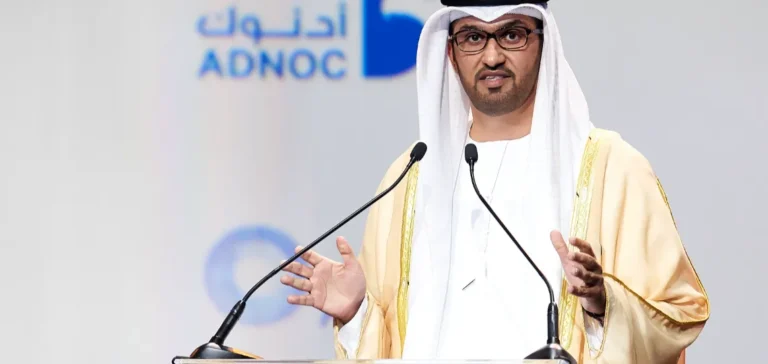Dr Sultan Ahmed Al Jaber, United Arab Emirates Minister of Industry and Advanced Technology and Group Chief Executive Officer of Abu Dhabi National Oil Company (ADNOC), has been named 2025 CEO of the Year by ICIS, an award voted on by the leaders of the forty largest global chemical companies. The recognition highlights his efforts to reposition ADNOC as a key player in the evolving chemical industry.
Investments and expansion of the chemical portfolio
One of the initiatives leading to this recognition is the launch of XRG, ADNOC’s international investment vehicle, chaired by Dr Al Jaber. XRG aims to build a top three global chemical platform by leveraging resources from crude oil and natural gas. The initiatives led by XRG include investments in the energy systems of the future, with a focus on markets driven by artificial intelligence.
Since his appointment as ADNOC CEO in 2016, Dr Al Jaber has overseen a progressive transformation of the group, combining technological development with optimisation of the industrial portfolio. He has steered the integration of advanced technologies and digital solutions to increase productivity, strengthen economic performance and position the group in new high-growth segments.
An award decided by global industry peers
The ICIS CEO of the Year award is determined through a vote by the leaders featured in the ICIS Top 40 Power Players ranking. Evaluation criteria include performance in technological innovation, profitability, portfolio management, strategic projects and corporate communication. Executives from Dow, Saudi Aramco, BASF and INEOS are among previous winners.
The Chief Executive Officer of ICIS noted that the collective decision recognises ADNOC’s strategic ambition to strengthen downstream capabilities and invest in long-term energy solutions. This positioning seeks to meet the rising demand for chemicals and energy in an industrial landscape rapidly reshaped by new technologies.
Dr Al Jaber stated he was receiving the award “on behalf of his colleagues at ADNOC and XRG,” emphasising the collective effort made to support global and industrial energy needs. The full interview with the winner will be published in an upcoming issue of ICIS Chemical Business.






















